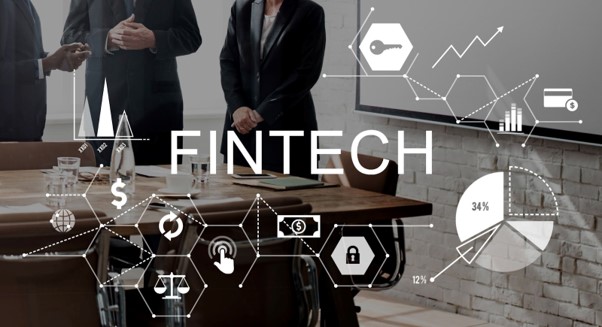
written by Harikrishna Kundariya
Over the past few decades, the development of FinTech has drastically changed the financial sector and revolutionized how we access and manage our finances. FinTech is a disruptive force that is leading to the evolution of traditional banking and financial services. The technological improvements in the fintech sector are gradually changing due to innovation, technological breakthroughs, and shifting customer expectations. The future of fintech is sure to be interesting and explosive.
Despite being considered an established and traditional area, the financial industry is always evolving. The financial technology sector, or “Fintech,” as it is more commonly known, is one of the most crucial areas of growth. The fintech industry will have a $179 billion valuation in 2023.
The goal of many fintech businesses has been to draw in customers who are looking for a different way to handle their financial demands. This is where the latest trends play an important role. Furthermore, fintech startups have enormous potential to quickly enter the market, thanks to emerging technologies like DeFi, generative AI, Web3, and blockchain. This article will offer insights into the patterns influencing the future of financial services in 2023 and beyond.
Introduction to Fintech
The term “fintech,” which stands for financial technology, refers to software and application developments intended to digitally revolutionize established financial sector procedures. The primary objective of fintech is to help startups, end-consumers, and organizations manage the financial operations and procedures more successfully.
Large sums of money are also being invested in this sector. Global financial technology managed to raise approximately $2 billion in August 2023. This investment is assisting in the growth of fintech companies into new markets and the development of new tech-driven financial products and services.
Top 7 Technology Trends Shaping the Fintech Future
- Artificial Intelligence and Machine Learning will play a massive role.
Relational databases and mainframe computers were first adopted by financial institutions. With a CAGR of 2.91%, AI in the fintech market is projected to reach USD 49.43 billion by 2028 from its estimated USD 42.83 billion in 2023.
Machine learning-based solutions for online and mobile apps are being introduced by banks and insurance organizations. Also, chatbots can recognize client problems and provide solutions in regional dialects and languages. AI-driven chatbots can also serve as virtual financial advisors, providing younger generations with advice and assistance that they might not have had access to in the past.
Fintech companies can resolve client complaints, establish financial objectives, and provide tailored advice by utilizing AI-powered data. Predictive analytics is going to be essential for making credit choices and predicting demands from the sector. Adopting cybersecurity and hyper-personalization services driven by AI will revolutionize the fintech industry.
- Embedded finance is revolutionizing payments.
Through the integration of financial services into non-financial channels, embedded finance is revolutionizing how payments are carried out. This enables users to access various financial services, including foreign money transfers, loan applications, and payment processing, on a single platform. It’s a smoother and more useful approach for companies to offer services and assist customers with money management.
Companies and consumers alike benefit from embedded finance. Financial services are now more easily and conveniently accessible to consumers, and businesses can now create new revenue streams and expand their business potential.
- Open banking and API integration will become more popular.
Open application programming interfaces, or APIs, are how third-party service providers can obtain client data to expand the open banking movement. It can spur innovation, raise transparency, and make the market more competitive.
Financial institutions can provide better goods and more individualized services by exchanging consumer data with other sources. Because they can now access several financial services on a single platform, customers can also enjoy a more seamless banking experience.
- The concept of digital lending is being widely accepted.
Neobanks, or digital-only banks with an online-only business model, are becoming major players in the fintech industry. By providing individualized financial products, intuitive account administration, and user-friendly interfaces, these businesses are rolling out established banking paradigms.
Platforms for digital lending are also becoming more popular. These platforms evaluate creditworthiness and provide rapid loans to consumers and small enterprises by utilizing machine learning and powerful data analytics.
- The growth of RegTech apps.
Regtech is the use of technology to manage regulatory procedures in the financial sector. Regtech’s primary duties include reporting, compliance, and regulatory monitoring. Financial institutions can avoid fines and other penalties for non-compliance by using RegTech solutions to stay updated with new rules.
To guarantee transaction security, fintech organizations are using sophisticated security processes, data privacy safeguards, and compliance automation. Security in the changing regulatory environment will be further improved by utilizing quantum cryptography and biometrics.
Many global regulators are now taking proactive steps to spread awareness of how regulatory technology can help develop and benefit them. Hence, it is expected that global usage of RegTech apps will eventually increase in the coming years.
- IoT is getting more popular.
Internet-connected devices may now collect, analyze, and act upon data without the need for human involvement by using the Internet of Things (IoT). The IoT has improved banking’s security, effectiveness, and ease, which has enormous effects on FinTech.
Financial institutions can automate reactions based on pre-established preferences or behaviors by integrating sensors into their products to monitor client activity. Fraud detection algorithms and automatic payments can be triggered by changes in customer spending habits.
Fintech organizations can access an extensive amount of data regarding client behavior, interests, and needs, one of the crucial benefits of IoT. Fintech companies can better adjust their marketing campaigns, interact with customers, and create financial products that meet individual needs by analyzing this data.
Additionally, voice recognition technology is also used for authentication, which simplifies login procedures and boosts security, increasing the difficulty of hacking accounts.
- Quantum computing is gaining traction.
Fintech applications that use quantum computing will be able to process massive volumes of data quickly, enabling highly accurate financial market forecasts, portfolio optimization, stay protected from financial loss and risk management. In addition, it lowers costs, boosts profile count, and increases transaction speed.
Money laundering and fraud detection can be made more effective with the use of quantum computing. Also, quantum computing can enhance trading strategies and risk assessments.
Conclusion
Fintech companies will gradually pay more attention to security, adhering to legal requirements, and reaping the rewards of machine learning and artificial intelligence. Additionally, a lot of companies will focus more on sustainable finance, which is linked to consumers’ increasing understanding.
As a catalyst for change in the financial industry, fintech has the power to fundamentally alter the field as it exists today. Tech-savvy people will lead the charge in making the financial ecosystem more technologically sophisticated, inclusive, and efficient.
Author: Harikrishna Kundariya

About the author: Harikrishna Kundariya, a marketer, developer,cIoT, ChatBot & Blockchain savvy, designer, co-founder, Director of eSparkBiz Technologies. His 12+ years of experience enables him to provide digital solutions to new start-ups based on IoT and SaaS applications.